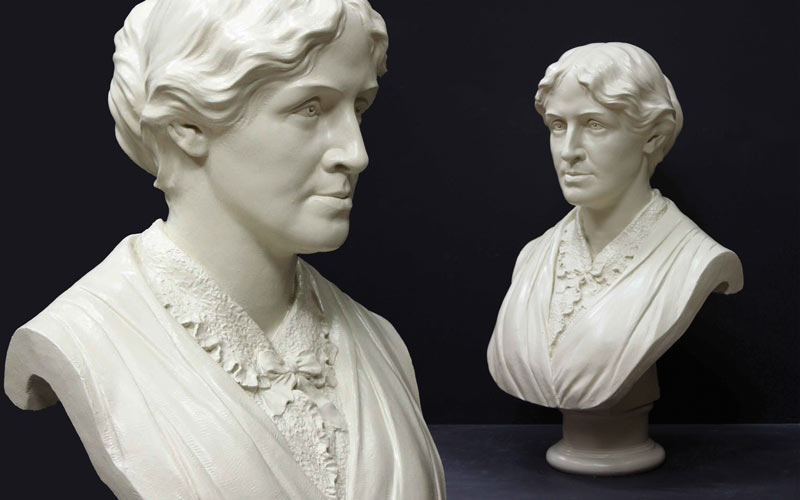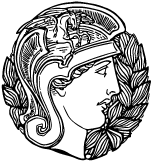
Louisa May Alcott
November 29, 1832 – March 6, 1888
American writer, social reformer, and women’s rights advocate
Major works: Little Women (1868), Little Men (1871), Hospital Sketches (1863)
Louisa May Alcott (1832 – 1888) was the second of four daughters born to Bronson (philosopher, educator, and Transcendentalist) and Abigail May Alcott. Her family settled in Concord, Massachusetts, where Alcott was educated by her father and such family friends as Ralph Waldo Emerson, Henry David Thoreau, and Margaret Fuller. She supported her family with her writing throughout her adult life, creating unforgettable characters such as the semi-autobiographical Jo March in the novel Little Women. The fiercely independent Alcott, who never married herself, was reluctant to make a romantic match for her heroine, but was eventually was pressured by her publisher and readers to end the novel with a marriage for Jo. Although she is best known for the wildly popular Little Women, Alcott was also the author of many other works of fiction and non-fiction, a Civil War nurse, an abolitionist, and an early suffragette. She held progressive values about women that have continued to be a source of inspiration to young women and authors around the world.
“If I can do no more, let my name stand among those who are willing to bear ridicule and reproach for the truth’s sake, and so earn some right to rejoice when the victory is won. Most heartily yours for Women’s Suffrage and all other reforms.” – Letter to Lucy Stone, August 31, 1885
Most famous for Little Women, which gave expression to the voices of young girls everywhere, Alcott was also a leading transcendentalist and public intellectual. She was an outspoken abolitionist, feminist, and champion for universal suffrage. Alcott and her family served as station masters for the Underground Railroad, and she also worked as a nurse during the Civil War, contracting typhus while ministering to Union troops. Alcott was the first woman to register to vote in Concord, MA in a school board election. Her humanistic spirit and progressive views permeate her literary works and elevate ideals that still have resonance today.
Little Women is a cornerstone of the Athenæum’s substantial collection of children’s literature, and the library is home to a widely circulated first edition of the book. Alcott’s father, Bronson Alcott, was introduced to the Athenaeum on March 17, 1843 by member and abolitionist William M. Chace.
The Athenæum’s bust is a copy of a 1892 plaster work completed by the sculptor Walton Ricketson [1839-1923], now part of the collection of the Concord Free Public Library in Concord, MA. Ricketson completed two artistic renditions of Alcott, the first being a bas-relief medallion done from life in 1886. The bust was produced posthumously and initially owned by Alcott’s sister, Anna Alcott Pratt. The sculpture was reproduced with permission of the Concord Free Public Library Corporation, Concord, MA.
To reproduce the bust, the original sculpture was loaned by the Concord Free Public Library and cast at Skylight Studios using traditional and contemporary methods. Silicone and plaster were used to construct the molds, which were then used to create the cast which became the final sculpture. Molding from the original sculpture allows for a faithful reproduction; the design of Ricketson’s base, however, was altered to a round socol shape to provide consistency with the other plaster busts in the Athenæum’s collection.



